Jack mackerels (Trachurus) are a genus of predatory fish that inhabit salt water and usually swim together in schools. They belong to the Carangidae family and can be found in the Pacific, Atlantic and Indian Ocean, as well as in the seas within them. Jack mackerels are distinguished by a large head.
The upper part of their body is colored gray and greenish. The lower part is colored white or gray. The interesting thing about Jack mackerels is that they have a dark spot on their gills. Jack mackerels can grow to a length of up to 15 3/4″ (40 cm). They can weigh up to 17.5 oz (500 g). Of course, on rare occasions there have been larger specimens captured.
Species of Jack Mackerels
The Trachurus genus contains more than 15 species of Jack mackerels. One example is the Mediterranean horse mackerel (Trachurus mediterraneus ponticus). It has a dark green back that is bluish in some spots. The sides of the fish are gray, while the belly is colored from silver to white. The Mediterranean horse mackerel has very specific types of scales that are arranged in a well-defined line.
It has a relatively large head and large eyes. Other distinct characteristics include powerful jaws and tiny teeth. Usually, the Mediterranean horse mackerel is no longer than 8″ (20 cm), its weight exceeding no more than 3.5 oz (100 g).
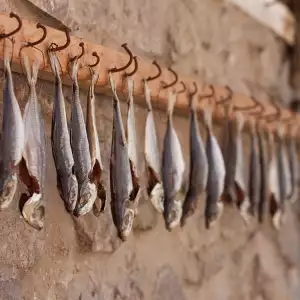
Behavior of Jack Mackerels
Jack mackerels are schooling fish. Smaller species feed on plankton, while larger Jack mackerels attack small fish. They eat crustaceans as well. Jack mackerels prefer warmer waters and as such when temperatures drop they head for regions where they can spend the winter months. In cases when the winter is warmer they stay where they are but if temperatures drop drastically they can't survive.
With the warming of the temperatures comes mating season. Roe is released in clumps from May to August. This occurs 6.2 miles to 18.6 mi from the shore, and the water temperature must be between 60°F (16 °C) and 80°F (26 °C). During the last days of September, the schools once again gather for the upcoming seasonal migration. Jack mackerels live a relatively long time, some species managing to survive up to 15 years.
Catching Jack Mackerels
This genus of fish has great aquacultural significance. Experienced fishermen prepare for Jack mackerel fishing in the second half of May, when they get closer to shore during mating season. They are caught using bottom fishing rigs. In August and October they are caught using hook flappers. Fishing needs to happen from shore. Marine worms and earthworms, as well as shrimp, work as suitable bait for Jack mackerels. On rarer occasions, pieces of fish or mussels are used. When a Jack mackerel bites, it's immediately evident by its sharp movements. But they are very flighty, so when one bites it needs to be taken out as quickly as possible since there is a danger of it frightening the remaining members of the school.
Cleaning Jack Mackerels
The 1st step in cleaning a Jack mackerel is thoroughly washing it with cold water. The Jack mackerel is a small fish, so those that are especially tiny usually just have their heads removed, without cutting open their bellies. In smaller fish, the scales are removed, with care, otherwise they can cause injury. Remove the head and the insides with it. Then wash it once again and dry it. You can salt the washed and dried fish and proceed to further treatment.
Cooking Jack Mackerels
Jack mackerels are a real seafood treasure. The meat is extremely appetizing and reminds of Atlantic mackerel. The fish is suitable not only for use in various specialties but for canning as well. Even so, die-hard chefs claim that it's better fried and its use in specialties is unnecessary.
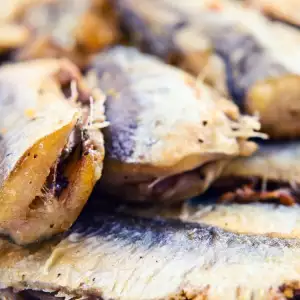
In any case, the aroma that will waft while preparing this fish will be indescribable. Especially if you prepare the tender meat with black pepper, garlic, parsley and dill. You can garnish a Jack mackerel with products of your choice, with vegetables best complementing the fish's taste. An excellent drink of choice for Jack mackerel is Pamid red wine.
Benefits of Jack Mackerels
Jack mackerels are not only a delicious food product but also a valuable source of vital substances. From them we can get calcium, copper, manganese, iodine, phosphorus, cobalt, iron, sodium, potassium, omega-3 fatty acids and more. Eating Jack mackerel aids the cardiovascular system and boosts heart function. Plus it improves thyroid gland function.
The benefits of Jack mackerel meat do not end there. Regular consumption of these types of fish contributes to the stabilization of hemoglobin levels in the blood, as well as strengthening of the immune system. Eating these fish is recommended during mental and physical exhaustion, lack of energy, faintness and nervousness.
Another positive aspect of Jack mackerels is that they are lean fish, meaning ones that contain up to 5% fat, making them suitable for people who are dieting, as well as for those with metabolic disorders.
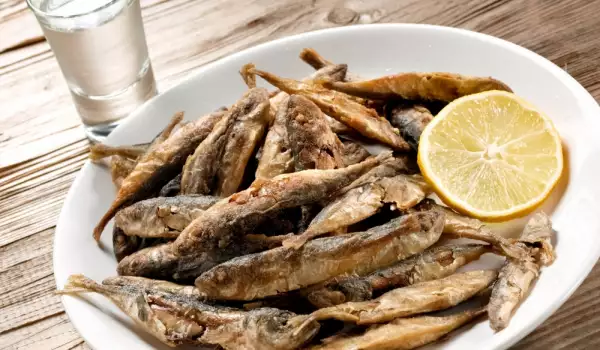
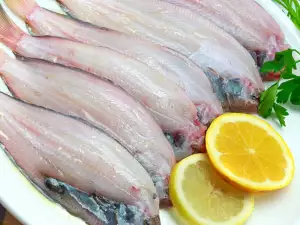


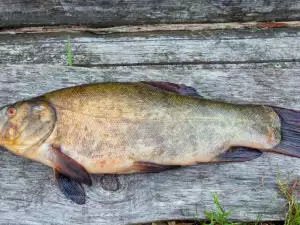
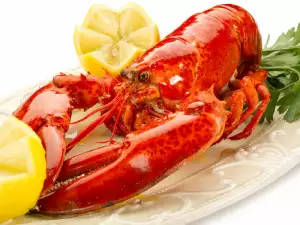

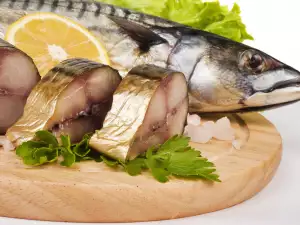

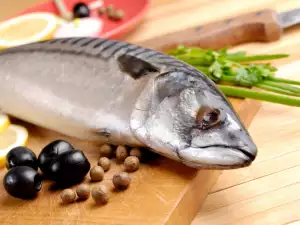





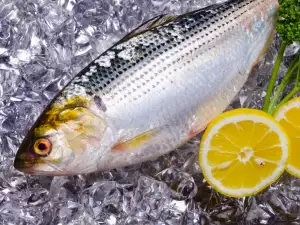




Comments